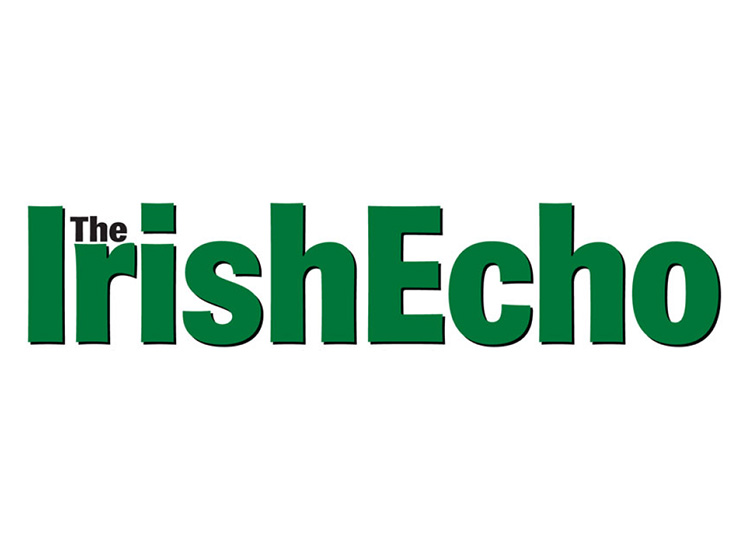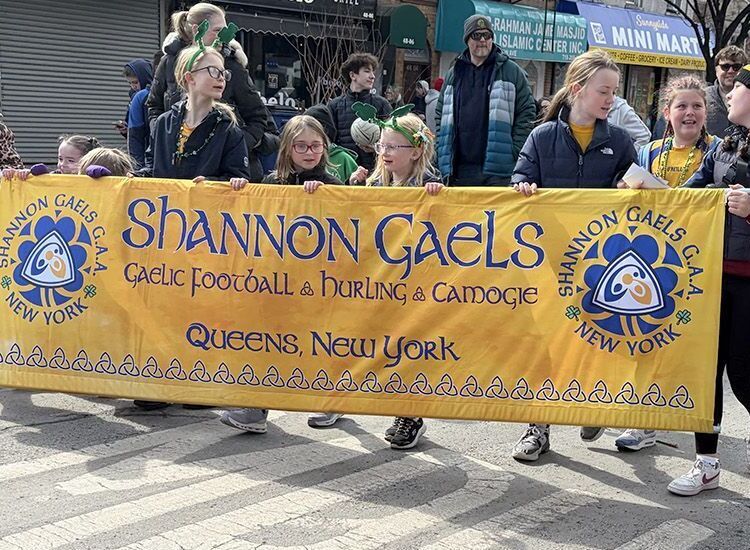By Ray O'Hanlon
"I think we're in a good place right now, the best place in a few years."
Bruce Morrison was finishing up on a positive note on a night where, depending on state of mind, you could pluck positive notes from the Queens air, negative ones, or simply vaguely reassuring ones.
And if the future on immigration reform was not really clearer in a definitive sense at evening's end than the immediate prospects for ash-free transatlantic air travel, there was comfort to be taken from the fact that the problem being addressed in the Sunnyside Community Center was merely-man made.
If the situation facing pro-immigration reform lawmakers on Capitol Hill were otherwise, well, everyone and everything was grounded, and those who turned up to hear the former Connecticut congressman might as well have stayed home.
But people, U.S. citizens, green card holders and undocumented, had turned out on a spring evening in another year of the comprehensive reform campaign to be told that reform still had a chance in Washington.
This was confirmed to a full room by Senator Charles Schumer, who turned up unannounced mid-meeting and briefed the audience on the latest state of play in Washington and his efforts to have a comprehensive immigration reform bill ready for congressional debate by May 1.
The Sunnyside meeting was something of a test in that the organizer, the Irish Lobby for Immigration Reform, has had to organize more meetings of this kind than it perhaps expected, and certainly wanted, when it first formed itself a few years ago.
But this meeting had its optimistic side even as it was addressed by others than the main billed speaker, Bruce Morrison, and his unbilled colleague, Chuck Schumer.
With ILIR head Ciaran Staunton opening the session with what amounted to a call to legislative arms, Dan Dennehy of the Ancient Order of Hibernians set the stage with a dose of hard reality. Only 1296 Irish people were naturalized in the U.S. in 2009, 298 of them in New York. At such a rate, Dennehy said, "our heritage, our neighborhoods" would die.
Hughie Meehan of the GAA, in from Boston for the meeting, spoke of efforts to prevent "younger folks" who could not travel back to Ireland because of their status from becoming disheartened.
Meehan, however, was himself dissatisfied with the attention being given by the Irish government in particular to one aspect of the reform push, a hoped for Irish E3 visa scheme.
The idea, he said, had been sent back to Ireland and "put in a drawer somewhere."
Meehan took a direct swipe at the Irish government, alleging that Irish ministers had come to Boston and had shown "disrespect" to Bruce Morrison, who has been working towards an E3 program.
Comprehensive reform on its own was not good enough, said Meehan. Sticking with Bruce Morrison, securing reform with an E3 plan "tagged on" was the way to go, he said.
Joe McManus, president of the United Irish Counties, pledged his organization's members and efforts to reform and said that he would be urging the presidents of all the county organizations to back the campaign.
Irish Deputy Consul General in New York, Bréandán O Caollaí, vigorously defended the Irish government's role and record stating that Taoiseach Brian Cowen, and Foreign Minister Micheál Martin, had only the highest of praise for Bruce Morrison.
The Irish government, he said, was juggling with the practical day-to-day difficulties of the present situation and was doing so with the "deepest concerns."
At the consulate, he said, "we do as much as we can." Other consulates around the country, which had to work with limited resources, and the Irish embassy in Washington, were in constant contact with Congress.
The government, he said, was "definitely determined" to find a solution which would be the E3 plan and comprehensive reform, the latter being the "dam buster" that would solve all the issues.
"The official stance of the Irish government is to support you, and to try to address the very real problems you face," said O'Caollaí.
Ciaran Staunton, who spoke again at this juncture, said that the Irish had a friend in Senator Chuck Schumer who, as if on cue, appeared in the room. He had, minutes before, arrived at La Guardia Airport from Washington.
Schumer told his listeners that he was committed, "with every atom in my body," to getting "a strong comprehensive immigration reform bill through this year."
Schumer gave the room a rundown on the essential points of the reform bill that he is putting together with Republican Party co-sponsor, Senator Lindsey Graham of South Carolina.
He spoke of the difficulties in getting a second GOP backer but stated that beyond Capitol Hill the coalition supporting reform had broadened to include evangelicals, Southern Baptists, business and labor which, in the case of the latter group, had "brought the last bill (McCain/Kennedy) down."
Schumer said that it might turn out that he would ask Lindsey Graham to "go alone with me," but if a significant number of Republicans said they would vote for the bill, and then a second Republican co-sponsor was found, the odds were "pretty decent" for a win. At that point, Schumer said, it would be time to "let it rip."
"I believe in this cause; we're going to get this immigration bill done," Schumer said to a standing ovation before taking his leave.
Bruce Morrison, who joked that he did not mind Schumer stealing the show from him, told the audience, to renewed cheering, that it couldn't have had a better demonstration of what was needed to win reform, and that they were lucky to have Chuck Schumer behind that effort.
Schumer, Morrison said, was in the key position of being chairman of the immigration sub-committee in the Senate, and that when he (Morrison) had secured the Morrison Visas, he had been chair at the time of the equivalent House sub-committee.
There was, Morrison said, no one better than Schumer to get the reform job done.
Morrison described Senator Schumer as being a super campaign leader in the perfect place. "But he's not God, he needs us," he said.
Said Morrison, in what amounted to a rallying cry: "we do not need to lobby Senator Schumer, but we need to be available for Senator Schumer."
Morrison added caution into his briefing saying, "I also want to level with you how hard it's going to be."
Maybe, he said, "we get the job done this summer, or maybe we will be back in November after the elections, or in January to continue the fight."
Morrison said it was "vital" that as part of any immigration reform deal that "we get something" with regard to "future flow from Ireland." This, he said, stemmed from the fact that Ireland, and he was speaking of the entire island, was a small country and could ever only hope to get a small slice of the overall immigration pie.
That's why the solution to the problem was "some other kind of visa," an E3 program that would provide 10,500 visas a year. So, added Morrison, the agenda for ILIR had to be "broad legalization and future flow."
If there were no reform in the summer or fall of this year, Morrison said, it would be necessary to "run it (reform) up the flagpole" again in January.
"I think we're in a good place right now, the best place in a few years," Morrison said, even while stressing that it was also necessary to be ready to be in for the long haul.
The meeting closed with an address by Queens City Council member Danny Drumm, who chairs the council's immigration committee. Drumm said that the Irish had a "special message" to deliver on the reform issue. He pledged his support and that of the council to getting the message out that this was an issue that profoundly affected all of America.
Sandra Boyle of the Emerald Isle Immigration Center reminded all in the room of the center's services to immigrants, including free legal advice.
The meeting, which lasted over two hours, concluded with questions and answers and also cautionary words from a young woman, recently arrived from Ireland. She spoke of an economy in tatters and a lot of anger and frustration - just the combination that spurred earlier generation to leave Ireland for America.










